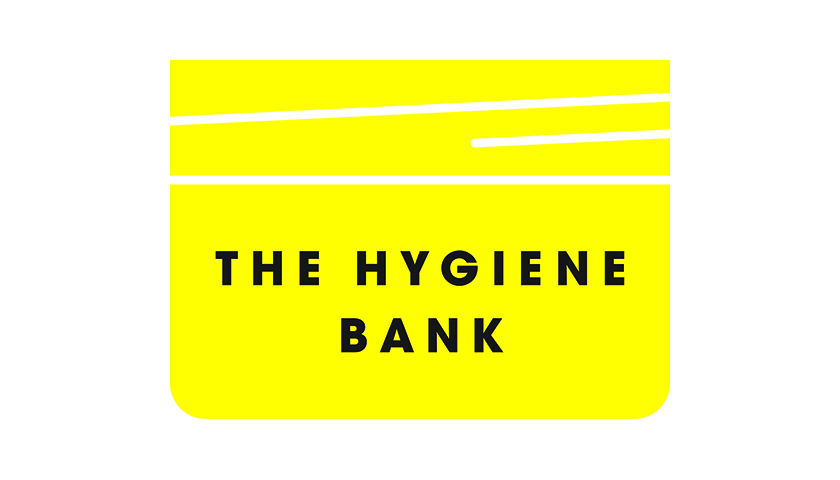smol has recently launched a new campaign in partnership with The Hygiene Bank to highlight the significant lack of access to clean clothes for those experiencing poverty in the UK, with people having to regularly re-wear dirty clothes and underwear due to not being able to afford to wash them- impacting mental wellbeing, physical health and ability to work.
smol’s research has found that a quarter (24%) of adults experiencing hygiene poverty (the inability to afford hygiene products that many of us take for granted) frequently struggle to afford to wash their clothes- having had to deprioritise in favour of food (29%), electricity (25%) and even period products for over 1 in 10 (13%) women surveyed.
Britons in hygiene poverty are having to regularly re-wear dirty clothes, with a third (36%) having had to re-wear dirty underwear. 28% are regularly re-using dirty sheets, over two thirds (68%) have had to re-use unclean pyjamas and almost half (44%) of parents have had to have their kids re-wear dirty clothing. To get by, over a quarter (26%) of those in hygiene poverty have had to wash their clothes with washing up liquid, whilst 28% have avoided using the washing machine altogether due to electricity costs.
Isolation and impact on wellbeing
With hygiene poverty on the rise, many are becoming isolated due to shame, with a third (32%) having avoided leaving the house in the past month due to feeling self conscious about a lack of clean clothes and almost half (45%) feeling this way in public. This is not surprising given that 1 in 10 (14%) have been judged in public for not having clean clothes, which has led to a loss of relationships, with 1 in 5 (22%) losing confidence making it harder to maintain friendships. One respondent explained: “certain members of my family are embarrassed by me”, whilst another said that “the smell pushes people away”.
With a third (30%) of those experiencing hygiene poverty expecting access to clean clothes to get worse over the next year, smol is setting out to raise 250,000 donated laundry capsules to The Hygiene Bank to ensure those struggling will have the means to wash their and their families clothes, in its fifth year of partnering with the charity.
Impact on mental and physical health
Mental and even physical health is being impacted; half (51%) of those in hygiene poverty say a lack of clean clothes has impacted their mental wellbeing, with over a quarter (26%) rating their mental health as poor whilst half (49%) say it has impacted their physical health.
Of those who say that a lack of clean clothes impacts their physical health, a third (33%) say it is because they are too ashamed to keep fit due to lack of clean activewear, with 14% of those in hygiene poverty regularly having to re-wear dirty activewear and one respondent explaining: “I feel I have been judged at the gym for being smelly.”
Impact on work
1 in 5 (22%) ‘regularly’ have to re-wear unclean workwear because they can’t afford to wash it, and half (49%) say that not being able to afford to wash their clothes has had a negative impact on their job or career. Of those who said their job has been negatively impacted, 61% say it is due to a loss of confidence- with women (67%) impacted more than men (52%) by this. 28% say it is due to being judged at work about their lack of clean clothes or hygiene. Concerningly, 1 in 5 (19%) have avoided going to a job interview, whilst over 1 in 7 (16%) have avoided going to work altogether due to unclean clothes.
Young people struggling the most
It seems that young people in hygiene poverty, aged 16-24, are struggling more than any other age group with 93% having struggled to afford to wash their clothes; a quarter (25%) frequently so. They are the most likely to have been judged in public for not having clean clothes (25%) and the age group with the most negative impact on their job (64%), as well as the age group most frequently sacrificing clean clothes in favour of rent or mortgage repayments with 1 in 5 (19%) doing so.
When it comes to mental health, young people were the most likely to say that a lack of clean clothes has an impact on their mental wellbeing (61%) and the most likely to have stayed indoors in the past month and avoided going out due to a lack of clean clothes (39%).
To find out about the multiple ways to help smol and The Hygiene Bank meet the target of 250,000 washes, and read more about what Clean Clothes Can do, visit www.smolproducts.com/clean-clothes-can.
Lucy Wishart, of smol said: “Everyone should have access to clean clothes, in order to live their life to the fullest – and our research has found that there are extensive ways in which a lack of access to clean clothes can impact a person’s life.
“With hygiene poverty increasing, people are having to make difficult decisions between heating, eating and being clean- and warmer weather poses its own challenges, with 42% of those surveyed concerned that this will mean they need to wash their clothes even more. It has never been more important for us to help make a difference by supporting The Hygiene Bank to help people up and down the UK impacted by hygiene poverty- because everyone deserves to be clean.”
Lizzy Hall, founder of The Hygiene Bank, said: “We’ve seen that laundry detergent has become one of the most in-demand hygiene products at our hygiene banks, as people are often having to prioritise the fundamentals to keep them fed and warm. But smol’s research shows the significant impact that access to clean clothes -something we often take for granted- has on our health and our livelihood, and the detrimental impact on those who struggle to afford it.
Everyone deserves to feel clean, but with the amount of people in the UK experiencing hygiene poverty continuing to rise, campaigns like Clean Clothes Can are needed more than ever. We’re asking the public to help us meet our target of raising a quarter of a million washes to help ensure that access to clean clothes isn’t a luxury, but a right.”

